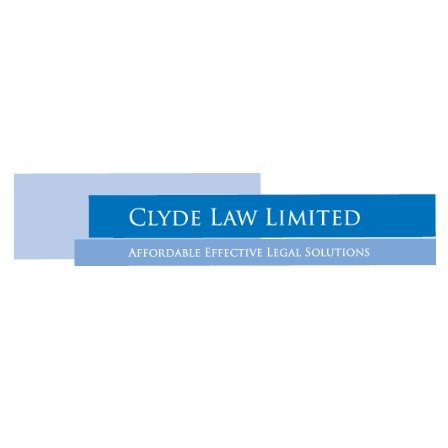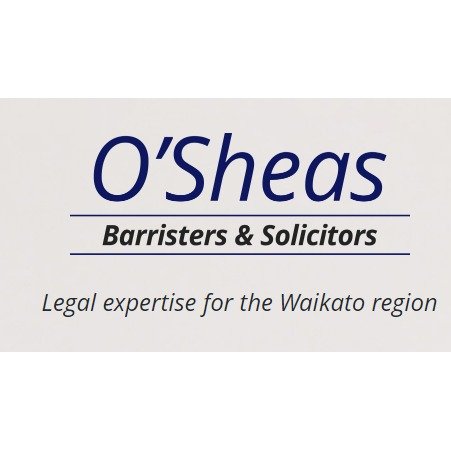Best Inheritance Law Lawyers in Hamilton
Share your needs with us, get contacted by law firms.
Free. Takes 2 min.
List of the best lawyers in Hamilton, New Zealand
1. About Inheritance Law in Hamilton, New Zealand
Inheritance law in Hamilton follows New Zealand wide statutes and court rules. It covers wills, estate administration, probate, intestacy rules, and protective provisions for dependants. In Hamilton, residents work with legal counsel to navigate the same national framework as the rest of the country.
Key concepts include appointing executors or administrators, obtaining a grant of probate or letters of administration, and distributing assets in accordance with a valid will or New Zealand law if there is no will. New Zealand courts oversee the process through probate and related hearings. A Hamilton solicitor can help you prepare documents, interact with the court, and resolve disputes fairly and efficiently.
In New Zealand, the core framework for wills and estates is established by the Wills Act 2007 and the Administration Act 1969.Ministry of Justice
2. Why You May Need a Lawyer
You have been named as executor in a will and need to apply for probate in the Hamilton High Court. A solicitor can guide you through filing the grant and locating assets.
There is no will and you need a grant of administration to settle the estate. An attorney can determine eligibility of eligible heirs and manage the process with the court.
A beneficiary challenges a will on capacity, undue influence, or forgery. A lawyer can assess grounds for challenge and represent you in court or mediation.
Family protections may be claimed. If a spouse or child believes the will excludes them improperly, a solicitor can advise on remedies under the Family Protection Act and related rules.
Assets span multiple jurisdictions or overseas beneficiaries. A New Zealand solicitor can coordinate with foreign counsel to avoid conflicts and ensure proper distribution.
There are complex tax and trust considerations within an estate. A specialist solicitor can advise on filing requirements and fiduciary duties to beneficiaries.
3. Local Laws Overview
The inheritance framework in Hamilton relies on national Acts enacted and amended over time. Local practice is shaped by how these statutes are applied in court registries and by Hamilton solicitors who represent clients before NZ courts.
Wills Act 2007
The Wills Act 2007 regulates how wills are made, witnessed, and revoked in New Zealand. It established modern rules for the execution of wills and for challenging invalid wills. It came into force on 1 January 2008, replacing older governs on will validity and formal requirements. This act is a cornerstone for probate and estate planning in Hamilton. Key terms to know include will, testament, codicil, and executor.
Administration Act 1969
The Administration Act 1969 provides the framework for administering estates when there is no will or when an executor needs direction. It sets out the process for obtaining letters of administration, prioritising heirs, and distributing assets. The act remains a primary reference for estate administration in Hamilton. Practitioners often cite this act when guiding clients through probate timelines and duties.
Relationships Property Act 1976 (as amended)
The Relationships Property Act 1976 governs how relationship property is divided after death for married or civil union partners. Amendments, including the Property (Relationships) Amendment Act 2001, broadened protections and clarified ownership and claims. This law can affect how an estate is distributed when a deceased person shared assets with a partner.
Note on practice in Hamilton: solicitors in Waikato advise clients on how these acts interact with local court procedures, including filing for probate or letters of administration and handling claims by dependants or beneficiaries.
4. Frequently Asked Questions
What is probate and when is it required in Hamilton?
Probate is the court process confirming a will and appointing an executor to administer the estate. It is usually required to authorize asset distribution for a testate estate in Hamilton. If there is a valid will, you apply for a grant of probate through the High Court.
How do I apply for a grant of probate in Hamilton, NZ?
You file a probate application with the appropriate court registry and provide the will, death certificate, and asset details. A Hamilton solicitor can prepare documents, liaise with the court, and manage creditor notices.
What is Letters of Administration and when is it needed?
Letters of Administration are issued when there is no valid will. They authorise the administrator to gather assets, pay debts, and distribute the estate under NZ intestacy rules. A lawyer helps determine the proper administrator and process.
How much does it cost to hire a solicitor for estate matters in Hamilton?
Costs vary by complexity and asset size. Typical matters include professional fees, court filing fees, and disbursements. A solicitor can provide a written estimate after reviewing the estate.
How long does probate typically take in New Zealand?
Simple probate matters may complete in 3-6 months. More complex estates with disputes or foreign assets can take 12 months or longer. A lawyer can outline a realistic timeline for your case.
Do I need a will to avoid intestacy in NZ?
Yes. A valid will directs asset distribution and reduces intestacy rules. Without a will, the estate follows statutory rules, which may not reflect your wishes.
Should I hire a solicitor or can I handle probate myself?
For most people, hiring a solicitor helps ensure accuracy, reduces delays, and protects beneficiaries. You can draft documents, but legal counsel assists with court filings and potential disputes.
Is there an inheritance tax in New Zealand?
New Zealand does not levy a separate inheritance or estate tax. Estates may be liable for other taxes or debts, and professional advice helps optimize outcomes for beneficiaries.
What are the executor and administrator duties in NZ?
Executors manage estate assets according to the will, pay debts, and distribute assets to beneficiaries. Administrators perform similar tasks when there is no will, guided by intestacy rules.
What is the difference between a will and a codicil?
A codicil is an amendment to an existing will. It must follow the same formal requirements as a will. A codicil modifies, rather than replaces, the will.
Can a will be challenged after death in Hamilton?
Yes. Grounds include lack of testamentary capacity, undue influence, incorrect execution, or forgery. A solicitor can advise on grounds and procedures for a challenge.
How can I file a Family Protection or Relationship Property claim in NZ?
Claims must be filed through the court with supporting evidence. A lawyer can help prepare affidavits, gather witnesses, and present legal arguments in court.
5. Additional Resources
- Ministry of Justice - Official information on wills, probate, and court processes in New Zealand. https://www.govt.nz
- New Zealand Law Society - Professional guidance, finding a solicitor or barrister, and practitioner standards. https://www.lawsociety.org.nz/
- New Zealand Parliament - Access to legislation and parliamentary history related to wills and estates. https://www.parliament.nz/
6. Next Steps
Identify your objective. Decide if you need probate, administration, or advice on a potential claim in Hamilton.
Consult a Hamilton solicitor who specializes in inheritance law. Ask about experience with local courts and typical timelines.
Gather key documents. Collect the will, death certificate, asset list, debts, and beneficiary information before your meeting.
Obtain a clear cost estimate. Request a written quote, including expected fees, disbursements, and potential additional costs.
Choose a strategy. Decide whether to pursue probate, challenge a will, or address intestacy with a plan to protect dependants.
File the appropriate court application. Your solicitor handles the probate or administration filing and any required creditor notices.
Monitor progress and communicate regularly. Set check-in dates with your solicitor for updates on timeline and potential issues.
Lawzana helps you find the best lawyers and law firms in Hamilton through a curated and pre-screened list of qualified legal professionals. Our platform offers rankings and detailed profiles of attorneys and law firms, allowing you to compare based on practice areas, including Inheritance Law, experience, and client feedback.
Each profile includes a description of the firm's areas of practice, client reviews, team members and partners, year of establishment, spoken languages, office locations, contact information, social media presence, and any published articles or resources. Most firms on our platform speak English and are experienced in both local and international legal matters.
Get a quote from top-rated law firms in Hamilton, New Zealand — quickly, securely, and without unnecessary hassle.
Disclaimer:
The information provided on this page is for general informational purposes only and does not constitute legal advice. While we strive to ensure the accuracy and relevance of the content, legal information may change over time, and interpretations of the law can vary. You should always consult with a qualified legal professional for advice specific to your situation.
We disclaim all liability for actions taken or not taken based on the content of this page. If you believe any information is incorrect or outdated, please contact us, and we will review and update it where appropriate.

















